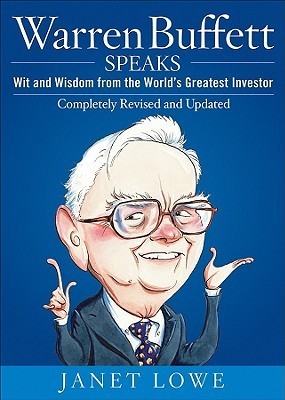
The Essays of Warren Buffett : Lessons for Corporate America
Book Description
Dive into the mind of the Oracle of Omaha, where wisdom meets the ruthless world of corporate strategy. Warren Buffett's Essays peel back the curtain on investment philosophies and ethical practices that have reshaped America’s corporate landscape. Each page is a masterclass in navigating complexity with clarity, illuminating the paths to lasting success while sidestepping pitfalls of greed and folly. As the stakes rise, the lessons echo far beyond the stock market—demanding integrity, foresight, and an appetite for learning. What timeless truths will resonate as you explore the art of business through Buffett’s unparalleled lens?
Quick Book Summary
"The Essays of Warren Buffett: Lessons for Corporate America" distills decades of wisdom from one of the world’s sharpest investors. Through a curated selection of Buffett’s annual letters to Berkshire Hathaway shareholders, the book offers timeless insights on corporate governance, value investing, and ethical business practices. Buffett’s writing demystifies complex financial concepts, emphasizing the importance of sound judgment, patience, and integrity in both investing and management. His candor exposes common pitfalls—from corporate excess to speculative mania—while championing transparency and long-term thinking. Ultimately, these essays serve not only as a roadmap for financial success, but as an ethical compass for anyone navigating the corporate world, highlighting that sustained prosperity arises from principled leadership and an unwavering commitment to continuous learning.
Summary of Key Ideas
Table of Contents
Value Investing Principles and Discipline
Warren Buffett’s essays reveal the bedrock principles of value investing, emphasizing the purchase of businesses with durable competitive advantages at reasonable prices. He advocates for a disciplined, patient approach—avoiding market trends, speculative mania, or attempts to time the market. Instead, Buffett stresses understanding the underlying business and investing with a long-term horizon. He consistently highlights the value of compounding returns and the dangers of emotional decision-making, urging investors to maintain rationality and independence.
Corporate Governance and Stewardship
On corporate governance, Buffett champions a system where management operates as true stewards of shareholders’ capital. He critiques practices like excessive executive compensation, opaque financial reporting, and misaligned incentives, arguing they erode trust and long-term value. Instead, Buffett models transparency and accountability, keeping shareholders informed and treating business partners with fairness. He asserts that sound governance is critical in building organizations that endure market shakeups and foster mutual trust.
The Importance of Ethical Leadership
Ethical leadership sits at the core of Buffett’s philosophy. He consistently underscores the necessity of integrity in every business interaction, warning that reputation, once tarnished, is difficult to restore. Buffett insists that leaders resist the temptations of greed and short-term victories, instead building cultures centered on honesty, prudence, and ethical rigor. This not only builds trust with stakeholders but also yields sustainable competitive advantage over time.
Long-Term Thinking Versus Short-Termism
Buffett identifies the trap of short-term thinking prevalent in many corporations. He observes that pressures to meet quarterly expectations often prompt imprudent decisions—such as unwarranted mergers, reckless expansion, or financial engineering. He advocates aligning incentives around long-term performance, preferring stability, consistent growth, and prudent capital allocation. This philosophy underpins Berkshire Hathaway’s own record of compounding value over decades.
Mergers, Acquisitions, and Shareholder Value
The essays also dissect mergers and acquisitions, cautioning against empire-building and the overuse of stock as acquisition currency. Buffett explains that value-creating transactions must be analyzed rigorously, not just for strategic fit but for their real impact on intrinsic value per share. He recommends that boards and executives make capital allocation decisions with a clear-eyed, shareholder-oriented perspective, ensuring that every major move genuinely advances enduring value.
Download This Summary
Get a free PDF of this summary instantly — no email required.





